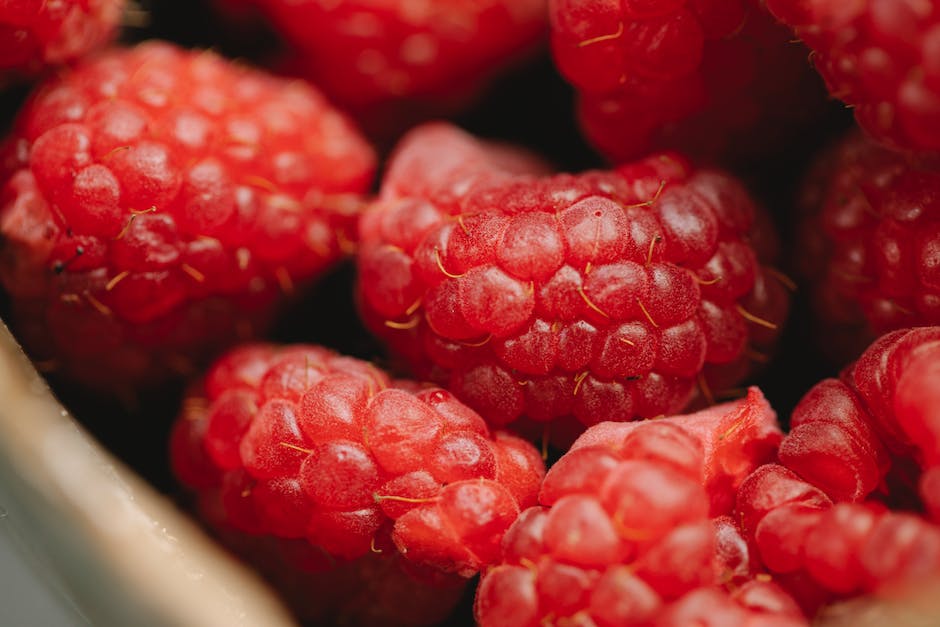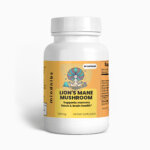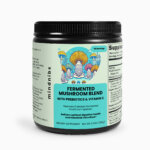
“Organic Vs. Non-Organic Foods: What’s the Difference?”
In today’s increasingly health-conscious society, the debate over organic versus non-organic foods has garnered significant attention. With more consumers seeking healthier options and sustainable production methods, it is essential to understand the key differences between these two categories. Organic and non-organic foods may look similar on the surface, but their production processes and impact on our health and the environment could not be more disparate. In this article, we will into the distinctive characteristics of organic and non-organic foods, providing you with the knowledge needed to make informed decisions about your diet and overall well-being. By the end of this enlightening discussion, you will undoubtedly see the vast disparity between organic and non-organic food, making a persuasive case for choosing the former as the superior choice for a healthier and more sustainable lifestyle.
1. Introduction: The Growing Debate on Organic Vs. Non-Organic Foods
The debate on organic versus non-organic foods has been steadily gaining momentum in recent years. As consumers become more conscious of the impact their food choices have on their health and the environment, this topic has become increasingly relevant. This section aims to provide an overview of the different factors at play in this debate, exploring the advantages and disadvantages of both organic and non-organic foods.
Organic foods have gained popularity due to their perceived benefits, often synonymous with a healthier lifestyle. These products are grown without the use of synthetic pesticides, genetically modified organisms (GMOs), or artificial fertilizers. By choosing organic foods, individuals can potentially reduce their exposure to potentially harmful chemicals, making it a preferable option for those concerned about their long-term health. Additionally, organic farming practices strive to preserve soil fertility and biodiversity, promoting a more sustainable approach to agriculture.
On the other hand, non-organic foods, also known as conventionally grown foods, are often more affordable and readily available than their organic counterparts. They are produced using modern farming techniques, including the use of synthetic chemicals and fertilizers. These practices enable farmers to control pests and maximize crop yields, ensuring a consistent food supply. Furthermore, conventional farming methods often employ advanced technologies to increase efficiency and reduce food waste, addressing the global challenge of feeding a rapidly growing population.
2. Understanding Organic Farming: The Basics
In today’s world, organic farming has gained considerable popularity due to its numerous benefits for both our health and the environment. Understanding the basics of organic farming is essential for anyone interested in making sustainable choices when it comes to food. By opting for organic produce, you not only support your own wellbeing but also contribute to the preservation of our planet.
One of the fundamental principles of organic farming is the exclusion of synthetic chemicals, such as pesticides and fertilizers, from the cultivation process. Instead, organic farmers rely on natural methods to nurture and protect their crops. This approach ensures that the food you consume is free from harmful residues, making it a safer choice for you and your family’s health.
Furthermore, organic farming practices promote biodiversity and sustainability. Organic farmers prioritize soil health by using techniques like crop rotation, cover cropping, and compost application. These methods enrich the soil with nutrients, improve its structure, and increase its water-holding capacity. Additionally, organic agriculture encourages the preservation of natural habitats and wildlife, as it avoids the use of harmful agrochemicals that can harm beneficial insects, birds, and other organisms.
3. Examining the Benefits of Organic Foods for Health and the Environment
Organic foods have gained significant popularity in recent years, and for good reason. Not only do they offer numerous health benefits, but they also contribute to a healthier environment. By choosing organic, you are not only nourishing your body but also supporting sustainable farming practices that help protect our planet.
Health Benefits:
- Reduced chemical exposure: Organic foods are grown without the use of synthetic pesticides, herbicides, and fertilizers. This means you can enjoy a diet free from harmful chemical residues that can potentially disrupt your hormonal balance and have detrimental effects on your overall health.
- Nutrient-dense: Studies have shown that organic fruits, vegetables, and grains often contain higher levels of essential nutrients than their conventionally grown counterparts. With organic foods, you can rest assured that you are providing your body with the vital vitamins and minerals it needs to thrive.
- Antioxidant-rich: Organic farming practices focus on enhancing soil quality, leading to greater antioxidant content in organic crops. Consuming foods rich in antioxidants can help strengthen your immune system, reduce the risk of chronic diseases, and promote youthful aging.
Environmental Benefits:
- Promotes biodiversity: Organic farming methods prioritize biodiversity by preserving natural habitats, promoting the growth of diverse crops, and supporting beneficial insects and animals. By choosing organic, you contribute to maintaining a balanced ecosystem and protecting endangered species.
- Soil preservation: Organic farming techniques prioritize replenishing soil health through the use of compost, crop rotation, and natural fertilizers. This leads to improved soil fertility, reduced erosion, and less water contamination, ensuring the long-term sustainability of our agricultural land.
- Reduced carbon footprint: Organic farming practices typically involve lower energy consumption and carbon emissions compared to conventional farming methods. By supporting organic agriculture, you help combat climate change and reduce the environmental impact associated with food production.
By embracing organic foods, you not only make a conscious choice to prioritize your health but also contribute to a more sustainable future for our planet. So next time you head to the grocery store, consider filling your cart with organic options and reap the benefits for both yourself and the environment.
4. Debunking Common Myths: Are Non-Organic Foods a Safe Alternative?
Non-organic foods often get a bad rap, with many people believing they are a less safe alternative to organic produce. However, it’s important to debunk some of the common myths surrounding non-organic foods and understand that they can be a perfectly safe option for your diet.
One common misconception is that non-organic foods are loaded with harmful pesticides. While it is true that non-organic farming may involve the use of pesticides, it doesn’t mean that these foods are unsafe to consume. In fact, regulatory bodies set strict limits on pesticide residue levels in non-organic produce, ensuring that they are well below harmful thresholds. Additionally, thorough washing and peeling can further reduce any potential pesticide residue on non-organic fruits and vegetables.
Another myth is that non-organic foods lack nutritional value. However, studies comparing the nutritional content of organic and non-organic foods have consistently shown that there is no significant difference between the two. Non-organic foods still provide essential vitamins, minerals, and macronutrients that are crucial for a balanced diet. So, if you’re concerned about getting the necessary nutrients in your daily meals, don’t be deterred by the non-organic label!
5. The Hidden Costs of Non-Organic Foods: A Look at Pesticides and GMOs
When it comes to purchasing non-organic foods, the price tag on the product doesn’t reveal the full story. Hidden costs lurk behind the scenes, particularly in the form of pesticides and genetically modified organisms (GMOs). These factors are not only detrimental to our health but also have far-reaching consequences for the environment.
The impact of pesticides on our health:
- Pesticides are used in conventional farming to ward off pests and increase crop yields, but their usage comes with a price.
- Residual pesticide residues can be found on non-organic produce, exposing consumers to potential health risks.
- Studies have linked pesticide exposure to various health issues, including neurological disorders, hormonal imbalances, and even certain types of cancers.
The dangers of GMOs:
- GMO crops are genetically engineered to withstand pests, diseases, or herbicides, ultimately leading to higher yields.
- However, the long-term effects of consuming GMOs remain largely unknown.
- Many concerns surround GMOs, including the potential for allergenic reactions, resistance to antibiotics, and the loss of biodiversity.
Supporting organic farming:
- By choosing organic foods, you are actively contributing to a healthier and more sustainable future.
- Organic farming practices prioritize the use of natural alternatives to pesticides, reducing the risk of chemical exposure.
- Furthermore, opting for organic foods encourages responsible and transparent farming methods while supporting local farmers.
As consumers, it’s essential to be aware of the hidden costs associated with non-organic foods. By making conscious choices and supporting organic farming, we not only prioritize our own well-being but also contribute to the preservation of a cleaner, safer, and more sustainable environment for future generations.
6. Organic Foods on a Budget: Is it Worth the Extra Expense?
When it comes to purchasing organic foods, many individuals believe that it is not worth the extra expense. However, the benefits of consuming organic foods far outweigh any additional costs. Here are a few reasons why opting for organic foods is a wise choice, even on a budget:
1. Health Benefits:
- Organic foods are produced without the use of synthetic chemicals, such as pesticides and herbicides. These chemicals have been linked to various health issues, including cancer, hormonal imbalances, and neurological disorders.
- Rather than relying on chemicals, organic farmers use natural methods and pesticides derived from natural sources to protect their crops. This reduces the intake of potentially harmful substances and helps maintain a healthier body.
- Furthermore, organic foods are often higher in essential nutrients, vitamins, and minerals. The lack of synthetic fertilizers allows the soil to produce more nutrient-rich crops, resulting in healthier food for consumers.
2. Environmental Benefits:
- Conventional farming practices contribute to harmful effects on the environment, such as soil erosion, water pollution, and loss of biodiversity. By choosing organic foods, you are supporting sustainable agricultural practices that prioritize soil health, water conservation, and wildlife preservation.
- Organic farming significantly reduces the use of fossil fuels and greenhouse gas emissions, making it a more eco-friendly option. Additionally, organic farmers often focus on biodiversity and crop rotation, which contribute to the overall health and resilience of ecosystems.
3. Economic Benefits:
- While organic foods may seem more expensive upfront, they offer long-term economic benefits. By investing in your health now, you can potentially save on medical costs in the future.
- Furthermore, supporting organic farming helps create job opportunities and boost local economies. The demand for organic products leads to a growth in the organic sector, generating employment and supporting small-scale farmers.
- Remember, you don’t have to buy every item organic. Prioritize purchasing organic versions of foods that are most heavily treated with pesticides, such as berries, leafy greens, and peaches.
So, when considering whether organic foods are worth the extra expense, think about the numerous benefits they offer – improved health, a cleaner environment, and a stronger economy. Let’s make the conscious choice to prioritize our wellbeing and the well-being of the planet by incorporating organic foods into our everyday lives.
7. Making Informed Choices: Empowering Consumers in the Organic Vs. Non-Organic Food Dilemma
In today’s world, consumers are faced with a dilemma when it comes to choosing between organic and non-organic food. However, making an informed choice is the key to empowering ourselves and promoting a healthier lifestyle. Here are three key factors to consider before making your decision:
1. The impact on your health: Choosing organic food means opting for products that are free from synthetic pesticides, genetically modified organisms (GMOs), and harmful chemicals. By consuming organic food, you reduce your exposure to potentially harmful substances, promoting better health and well-being.
2. The environmental benefits: Organic farming practices prioritize sustainability and protect the environment. This approach avoids the use of synthetic chemicals and relies on natural methods such as crop rotation and biological pest control. By choosing organic, you support a healthier ecosystem, protect wildlife, and conserve water resources, ultimately contributing to a greener planet.
3. The taste and quality: Many organic food enthusiasts argue that the flavor and quality of organic products are superior to their non-organic counterparts. Organic farming practices focus on soil fertility, resulting in nutrient-rich produce. Additionally, organic livestock is raised without the use of antibiotics or growth hormones, leading to meat and dairy products that are often considered tastier and healthier.
In the end, it’s up to you to decide whether organic or non-organic foods are the right choice. At the very least, take the time to understand the differences and make an informed decision about the food you put into your body. Eating healthy is one of the best things you can do for both your physical and mental wellbeing, and staying informed is a great way to make smart decisions about the food you consume.

























